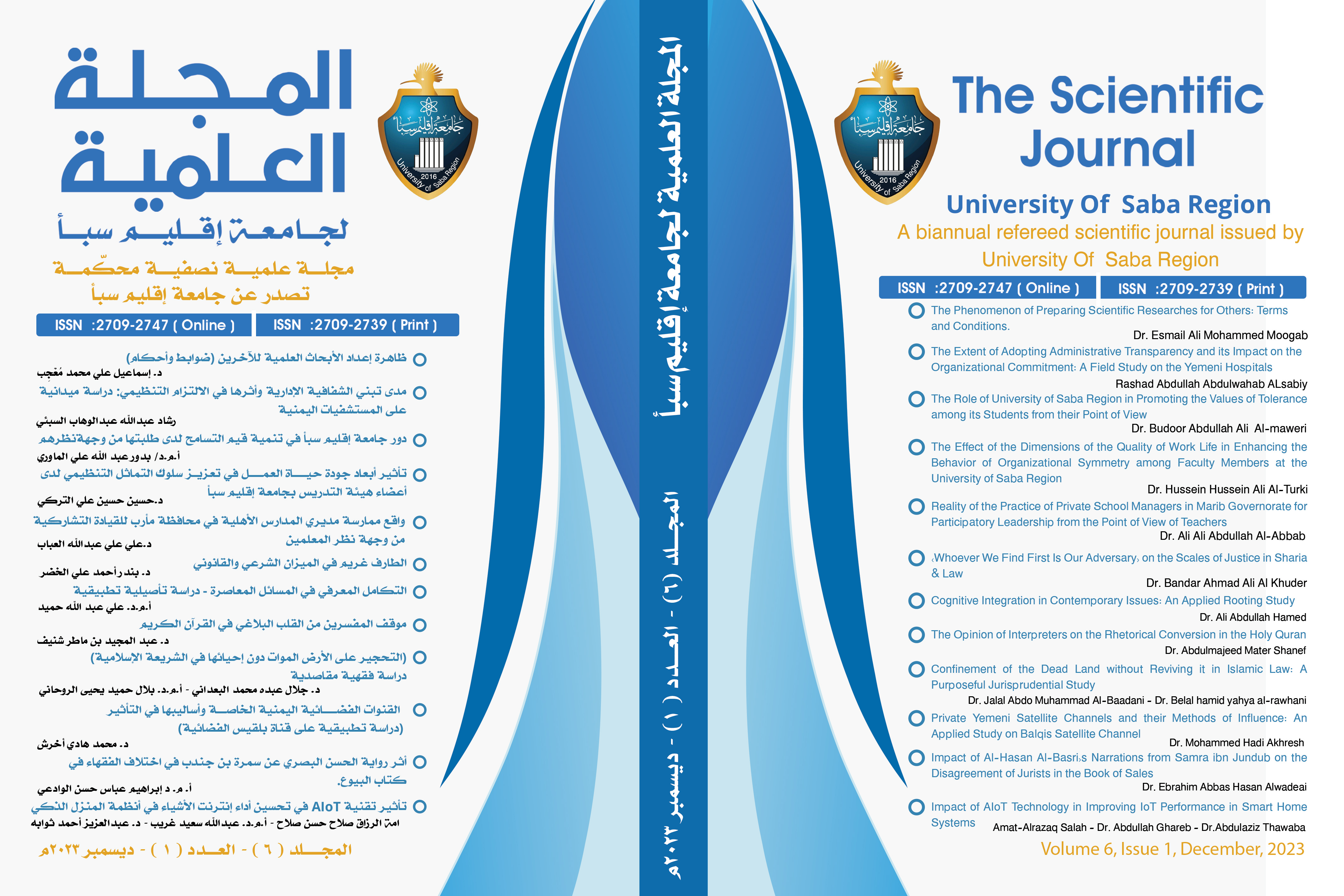Confinement of the Dead Land without Reviving it in Islamic Law: A Purposeful Jurisprudential Study
DOI:
https://doi.org/10.54582/TSJ.2.2.71Keywords:
Confinement, Revival, Ownership, Lands, Dead landsAbstract
Islamic law (Sharia) came to achieve the interests of people in this life and in the hereafter, and to ward off evil from them, and this includes urging people to revive the dead lands, and make it a condition for ownership, and restrict confinement to special lands only. Many Muslims today are ignorant of this issue, and they are ignorant of its purposes and objectives, and this requires specialists to clarify the ambiguity and remove the confusion. There has been a lot of talk about this topic, whether in the past or at the present time, and scattered in various books. Therefore, it is necessary for researchers to explain and highlight Islam’s approach to this issue. This study includes five sections: the first is about the definition of reviving the dead land, and seizing it, possessing it and confining it. The second is about the dead land that is permissible to revive. The third is about the confinement of the dead land, and the rulings on its ownership, selling, and negligence. The fourth is about feudalism in Islamic law (Sharia) and its rulings. The last one is about the purposes of Islamic law in making revival of the dead land as a condition for ownership. The methodology used in this study is the inductive and analytical approach. The jurists’ sayings are analyzed and compared to each other, and the purposes of Islamic law (Sharia) are explained and clarified. The study arrives at the following results: the dead land cannot be owned except by reviving it, and that confinement is not considered ownership of the land. Whoever confines a land, has the right to revive it, without the interference of anyone else, for a specific period, and it is not permissible to violate this right during that period. It is not permissible to sell confined land that is not intended to revive, according to the most correct opinion of the jurists, and such a price is considered unlawful. And this land is also not to be inherited from the one who does not intend to revive it, and it is not permissible for the heirs, if they do not revive it, to prevent others from reviving it. It is not also permissible for them to sell it, if they do not revive it, and that feudalism from the Imam is not considered ownership.
Downloads
Published
How to Cite
Issue
Section
License
Copyright and Licensing
This journal publishes all scientific materials under the Creative Commons Attribution 4.0 International (CC BY 4.0) , license, which grants you the following permissions:
You are free to:
- Share — copy and redistribute the material in any medium or format for any purpose, even commercially.
- Adapt — remix, transform, and build upon the material for any purpose, even commercially.
- The licensor cannot revoke these freedoms as long as you follow the license terms.
Under the following terms:
- Attribution — You must give appropriate credit , provide a link to the license, and indicate if changes were made . You may do so in any reasonable manner, but not in any way that suggests the licensor endorses you or your use.
- No additional restrictions — You may not apply legal terms or technological measures that legally restrict others from doing anything the license permits.
Notices:
You do not have to comply with the license for elements of the material in the public domain or where your use is permitted by an applicable exception or limitation .
No warranties are given. The license may not give you all of the permissions necessary for your intended use. For example, other rights such as publicity, privacy, or moral rights may limit how you use the material.











